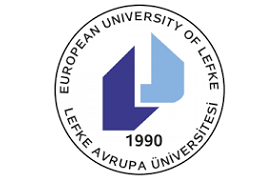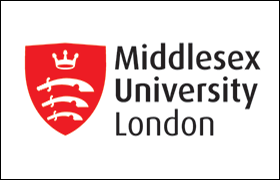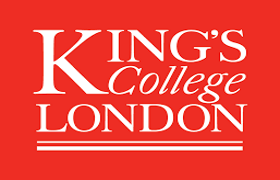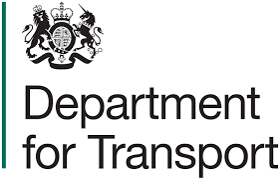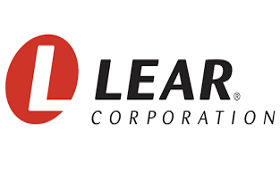Centre for Research into Intelligent Cities (CENTRICS )
A proposal to develop a Centre for Research into Intelligent Cities (CENTRICS)
Several emerging technologies are being developed which can be combined to build Intelligent Cities (ICs). ICs are necessary to facilitate the next phase of human progress as it is estimated that by 2020 more than half the population of the world will live in cities. Intelligent Cities will enable this large movement of people by exploiting synergies but also by minimizing the negative effects of such large migrations.
In order to build Intelligent Cities, we need to develop and combine technologies in several areas including Transport, Communications, Urban Space and Infrastructure Management, Advanced Healthcare Systems, Digital and Financial Services Platforms as well as Cyber-Physical, Personal and Information Security Frameworks.
The challenge therefore is to bring together these technologies to form the Intelligent City. These technologies should combine to the benefit of all city dwellers resulting in better quality of life from birth to death, more diverse life-style choices, less stressful but more productive work places plus better managed and more enjoyable recreational areas. In order to build Intelligent Cities, we need to look at the technologies being developed to provide mechanisms to address the areas mentioned above.
Transport
The Intelligent City must have a diverse, effective and efficient transport system. Different traffic patterns such as urban and motorway traffic must be identified and their interaction must be carefully managed to reduce traffic congestion at peak times. In addition, different modes of transport including buses, cars, Tube, cycling and walking need to managed in an integrated fashion. Vehicular Ad-Hoc Network (VANET) Technology allows us to study communication between cars as well as with Roadside Units (RSUs). Middlesex University has implemented a VANET Testbed and preliminary results indicate that it should be possible to use the VANET system to study the issues highlighted above. Another aspect of travel that has been neglected is air travel. Optimizing air travel will bring significant benefits for all stakeholders including passengers, airlines, airport authorities, air traffic systems and local communities. The Intelligent Airport should result in minimized costs, reduced door-to-door travel times and smaller environmental damage to local communities where airports are located.
Communication
The communication systems of the Intelligent City should support the 4As paradigm of anytime, anywhere, anyhow and anything. This ubiquitous communication will be achieved by seamless handover between different networks. In addition, work on future mobile systems such as 5G will enable support for lower latency, higher bandwidth communication.
So far, the mobile phone has been thought of as the only mobile device that is fully supported by the mobile infrastructure. We believe there is an increased need to make the car the next first class communication device in mobile networks. So mobile applications will be able to switch from the car to the phone and vice-versa. Hence some characteristics of VANET technology will need to be integrated into future mobile networks such as 5G.
Urban Space and Infrastructure Management
This will be a large component of the management of the Intelligent City. This includes the development of Intelligent Environments including Intelligent Buildings, Smart Homes, Smart Grids and Smart Metering. Furthermore, urban open spaces need to be better managed to help different activities to be safely and efficiently executed. The key to providing this functionality is the development and deployment of a large array of Wireless Sensor Networks (WSNs). This will be enabled by the migration from the Internet of Machines, which describes the present Internet to the Internet of Things (IoT). WSNs will be managed from large Cloud Environments using Software Defined Networking (SDN) and Network Function Virtualization (NFV).
Advanced Healthcare Systems
The Intelligent City will allow city dwellers to live healthier and longer lives by facilitating the deployment of devices to support eHealth and mHealth. Medical devices will be available in Smart Homes allowing residents to take medical readings in their homes and for these readings to be automatically uploaded to medical personnel. These readings will be stored securely in the Cloud using a new Framework for Cloud Security. In addition, there will be an extensive use of video communications to provide community health support for residents in their homes. This information revolution in e-Health will allow new capabilities to be developed such as the ability to monitor the spread of contagious diseases in real time, better management of long-term diseases such as diabetes and obesity, and more effective management of hospital and community resources. Medical monitoring devices will be cheaply made using IoT technologies and the readings from these devices will be combined using visual analytics techniques to give a clearer picture of the patients’ health.
Digital and Financial Services Platforms
All services provided by local government in the Intelligent City will be delivered digitally using a Digital and Financial Services Platform. This platform will allow the management of several key services including utilities, local transport, parking, etc. It will also help manage democratic processes for local government, as it should support voting at the local government level, referendums and recall voting. Digital Services will be delivered by the development of an Intelligent Information Platform (IIP) that will be used to build applications for these services. The IIP itself will be built using Federated Infrastructural Clouds (FICs). FICs will be implemented using Open-Source Cloud Infrastructure Systems such as the Apache Hadoop Software Framework. Digital Services will be directly connected to Financial Systems that will manage the accounting, billing and payment for these services.
Cyber-physical, Personal and Information Security Frameworks
Security will be a very important part of the Intelligent City. Using Cyber-physical Security techniques, the Intelligent City can react to attacks on its infrastructure: from attacks on physical systems or plant to Distributed Denial of Service (DDoS) attacks on main servers through the Internet.
Security will also extend to the safety of city dwellers. By gathering information and processing relevant input, the IC will be able to provide more personal safety information to the dweller from anywhere and at anytime. The ability to voluntarily track journeys will also lead to more personal safety.
Finally, Information Security must also be supported in the Intelligent City. Data stored in the Intelligent Infrastructure will provide complete security using the standard model that provides confidentiality, integrity and availability (CIA), which is adhered to in all Information Security Frameworks.
Proposal: The Centre for Research into Intelligent Cities
We propose to develop a Centre for Research into Intelligent Cities called CENTRICS. This institute will focus on the development and integration of techniques and systems to build the Intelligent City.
- The Centre will be operated using a spoke-and-hub model with other associated research centres becoming part of CENTRICS. The administrative section (the spoke) of the Centre will be situated at the Hendon Campus of Middlesex University and will handle issues of administration, funding and communication between entities participating in the Centre.
- The Centre will be based around the building of prototypes, testbeds and sandboxes. These systems will be highly instrumented to give as much data as possible from these environments. This should therefore reduce the development cycle of innovative products and systems.
- The Centre will be open to universities, government bodies and industry. The Centre will be run by a Board, which will be comprised of people from academia, governmental bodies and industry. Board members will serve on a voluntary basis.
MDX – Connected Vehicles Project Partners
VANET - Vehicle Ad-Hoc Networks Research group at Middlesex University
Latest posts by VANET - Vehicle Ad-Hoc Networks Research group at Middlesex University (see all)
- Latest news ! Awarded Contracts +! Congratulations to the MDX stars ! - November 4, 2017
- Full Coverage Map of the MDX Extended Connected Vehicle Testbed – A41/M1 (Motorway) - October 25, 2017
- MDX Extended VANET Testbed – A41/M1 (Motorway) – You have been VANETed is back….!!! - December 4, 2016

